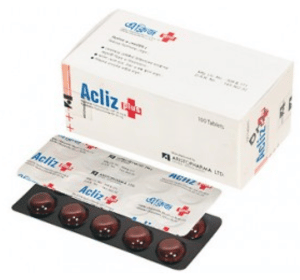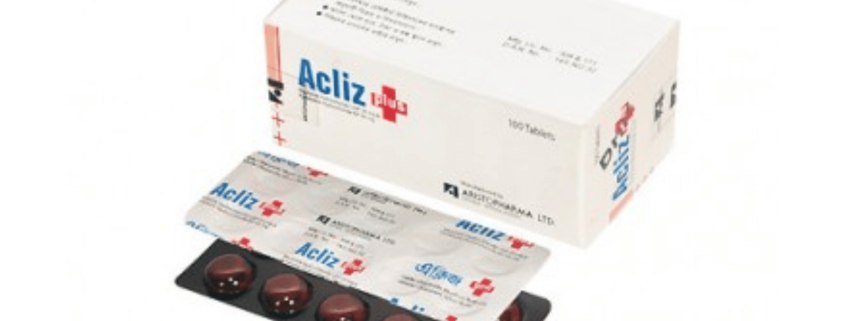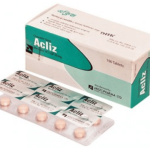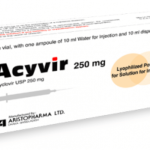Acliz Plus

Acliz Plus (Meclizine HCL + Pyridoxine HCL)
Indications
For prophylaxis and symptomatic relief of nausea, vomiting, dizziness, motion sickness, radiation sickness and vertigo associated with diseases of vestibular motion sickness, radiation sickness and vertigo associated with diseases of vestibular system, morning sickness during pregnancy, drug induced nausea, vomiting induced by oral contraceptives or Estrogen preparations.
Dosage & Administration
The fixed-dose combination is recommended for oral administration.
Nausea & vomiting (including morning sickness in pregnancy): One tablet 1-2 times daily.
Motion sickness: One or two tablets one hour prior to journey. The dose may be repeated every 24 hours as indicated for the duration of journey.
Vertigo: One tablet 2 times daily or as directed by physician.
Labyrinthine and vestibular disturbances: The optimal dose of Meclizine Hydrochloride is usually 25 to 100 mg daily in divided doses, depending on the clinical response.
Radiation sickness: 50 mg (Meclizine Hydrochloride) administered 2 to 12 hours prior to radiation treatment. Pyridoxine Hydrochloride (vitamin B6) has been shown to be safe and effective in dosages of 50 to 200 mg per day.
Side effects
Drowsiness, dry mouth, urinary retention in rare occasions, blurred vision has been reported. Sensory neuropathy reported with high dosage of Pyridoxine Hydrochloride given for extended periods.
Drug interaction
There may be increased CNS depression when Meclizine Hydrochloride and Pyridoxine Hydrochloride is administered concurrently with other CNS depressants, including benzodiazepines, barbiturates, tricyclic antidepressants, opiate agonists, skeletal muscle relaxants, antihistamines, alcohol, tranquilizers. Meclizine Hydrochloride can increase the absorption of digoxin by decreasing gastrointestinal motility. MAO inhibitors may prolong and intensify the anticholinergic effects of meclizine Hydrochloride.
Description
Meclizine has antiemetic, anticholinergic and antihistaminic properties. It reduces the sensitivity of the labyrinthine apparatus. The action may be mediated through nerve pathways to the vomiting centre (VC) from the chemoreceptor trigger zone (CTZ), peripheral nerve pathways or other CNS centres. Pyridoxine Hydrochloride (Vit – B6), either alone or in combination has been used to prevent nausea & vomiting due to its antiemetic properties.



